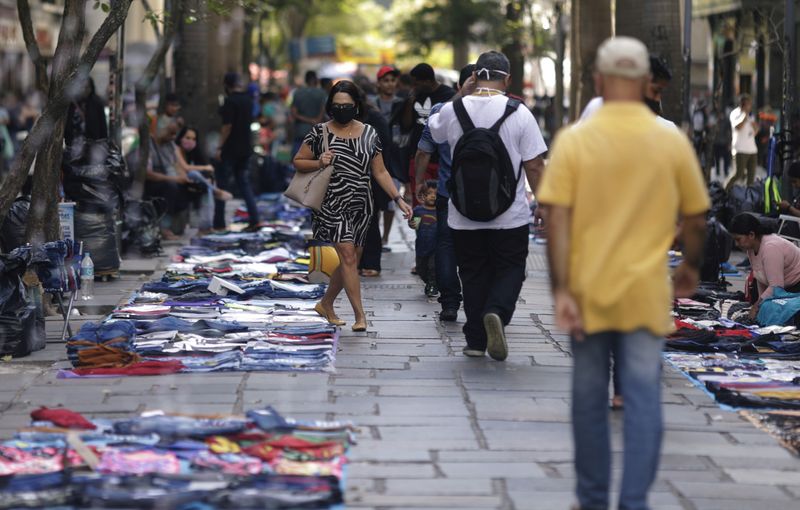By Marcela Ayres
BRASILIA (Reuters) - Brazil's economy rebounded more than expected in the first quarter, powered by a booming farm sector and paving the way for a rosier annual outlook despite a drag from high interest rates.
Gross domestic product (GDP) expanded by 1.9% in the three months through March after a revised 0.1% drop in the prior quarter, data from government statistics agency IBGE showed on Thursday. Growth beat the 1.3% median forecast in a Reuters poll of economists.
The Brazilian real strengthened more than 1% against the U.S. dollar and the benchmark Bovespa stock index rose 1.8%.
President Luiz Inacio Lula da Silva welcomed the figure and said he was confident about Brazil's economy, which he added "will grow more than the IMF estimate."
In April, the International Monetary Fund cut its forecast for the country's 2023 GDP growth to 0.9%, from 1.2% previously.
Planning Minister Simone Tebet told journalists the economy could grow up to 2.3% this year without inflationary pressure, and the finance ministry said the latest data could lead it to raise a current outlook for 1.9% growth this year.
The ministry had anticipated a boost from a strong harvest and more robust services activity due to government policies raising disposable income, such as a higher minimum wage and more generous welfare programs.
Agricultural output surged 21.6% in the quarter, while service activity grew 0.6% and industry declined by 0.1%.
On the demand side, household consumption rose by 0.2%, while government spending increased by 0.3%.
Latin America's largest economy grew 4.0% in the first quarter from a year earlier, exceeding the projected 3.0% expansion.
Goldman Sachs (NYSE:GS) adjusted its 2023 GDP growth forecast to 2.6% from 1.75% after the first-quarter data, citing the additional help of net exports and inventory accumulation.
XP (NASDAQ:XP) economists indicated an upward revision of their current 1.4% growth outlook, forecasting market expectations to keep rising to the range of 2.0% to 2.5%.
Ahead of the first-quarter GDP figures, private economists in a weekly central bank survey had raised their 2023 estimates to 1.26% growth, still a sharp slowdown from the 2.9% advance last year.
Lula has criticized the central bank for holding its benchmark interest rate at a six-year high of 13.75% despite declining inflation, arguing that such high borrowing costs hamper economic activity.
Lucas Toro, chief analyst at Toro Investimentos, said even with better-than-expected growth to start the year, he still expects rate cuts to kick off in the second half of 2023 on more benign signs of inflation.
Central bank chief Roberto Campos Neto earlier this week acknowledged that growth was surprising on the upside, but anticipated that a slowdown in core inflation would continue.
